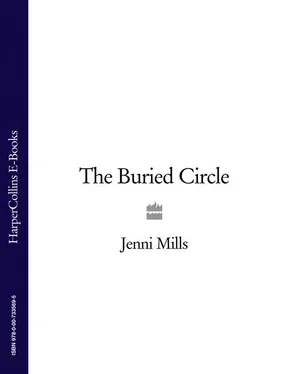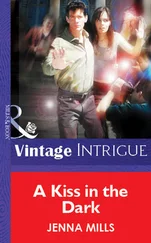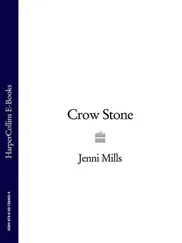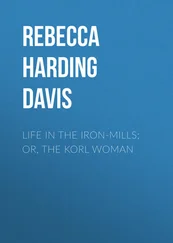Reluctantly, I clamber to my feet and start to walk up to the Ridgeway, turning to catch a last glimpse of the twilight walker before he disappears below the curve of the slope. He’s taking the steep, slippy bit fast, with a polka-ish sideways gait like he’s scree-running. Perfect balance. Perfect arse. You have to admire.
John’s home below Overton Hill is not pretty by Wiltshire-cottage standards: instead of thatch and sarsen, it’s square-built of plain red brick, with a tiled roof. Living room downstairs, with a kitchen at the back, like an afterthought; two small bedrooms and a minuscule bathroom upstairs. Seventy years ago, when Fran was a girl, a farm worker and his wife would have brought up half a dozen children here.
I’m half expecting John not to be in, but the door opens almost immediately when I knock. In the living room, the stool he uses for reflexology sessions is drawn up to the sofa, and there’s a green silk scarf on the floor. ‘You haven’t got company?’
John bends down to pick it up. ‘She does that every time. Leaves something so she’s an excuse to pop in and collect it.’
‘Thinking she might catch you at it with one of your other clients?’
He grins. ‘Does make me nervous. Sit down, kettle’s on the stove.’ He disappears into the kitchen, and I settle myself in front of a cheerful fire, checking first that no other female client has left a memento, like a pair of knickers stuffed behind the sofa cushions. In the corner of the room, leather-skinned drums are stacked on top of each other, next to a shelf full of drumming cassettes and books with beefy, muscular titles like The Way of the Shaman, Recognizing Your Power Animal , and Psychic Self-Defence .
‘How’s Frannie?’ he calls from the kitchen.
‘Still refusing to utter another word about Grandad.’
Every time I’ve tried to raise the subject, her eyes fill with tears and her mouth turns down. When I questioned her after seeing the date on Davey Fergusson’s headstone, last autumn, her response was to suggest I’d found the wrong grave marker. Then she told me I’d misremembered Margaret’s birthday. Your mother was always coy about her age, she said.
This was true, but there’s coy and there’s eye-wateringly unbelievable. Margaret liked people to think she was still in her thirties long after she’d hit the big four-oh, but I’m certain I’ve seen 1945 written down. I’d had her passport, once, with a whole parcel of other stuff that had been returned to us after she died in Goa, when I was thirteen–a stupid accident, falling off the side of a stage. That was so Margaret it can make me smile now: she was graceful when she danced, but clumsy in every other setting. I burned everything on a ceremonial pyre. Now I wish I hadn’t.
John returns with mugs of tea. ‘You should stop nagging her. Frannie’ll tell you in her own time–if there’s anything to tell. She OK otherwise?’
‘Fine, I think. Except…’ I stir mine vigorously, then remember I promised myself I’d cut out sugar this week. ‘Except she keeps having air-hostess moments.’
‘Having what? John, in the middle of stoking the fire with another log, stops and turns round. ‘Air hostess?’
‘Calm, polite, smiling, but sort of empty’ I’m groping for words to describe the indescribable, but deep down, very deep down, worrying that it is describable, with some horrible medical term like dementia. ‘I’m not sure if it’s to stop me pestering her about the past, or her way of trying to conceal when she gets confused. You know how air hostesses delete part of their personality. “Please fasten your seatbelts, ladies and gentlemen, a little turbulence is not any cause for concern.’”
‘Know what I think?’ John kicks the reflexology stool into place between us as makeshift coffee-table, and settles himself in the armchair. ‘Could be TIA.’
‘That some sort of airline?’
‘A mini-stroke. When I was nursing, we used to come across it all the time.’ After he left the army, with a bad case of combat stress, one of John’s jobs was in a geriatric nursing home in Bristol. ‘You find them on the floor, all in a tizz, can’t remember what happened, how long they’ve been there. No paralysis, none of the obvious symptoms of stroke, but it wipes part of their memory. Very common.’
‘You think that has anything to do with not wanting to talk about my grandfather? Like she really can’t remember?’ Relief is sluicing through me. At least John didn’t suggest Alzheimer’s. Maybe it won’t become any worse.
‘Who knows? I’m no expert.’
I hate it when he talks about Frannie as if she’s ill. Makes me want to shout: You’re supposed to be a bloody shamanic healer. Can’t you do something? But he’d only tell me there’s no healing old age. Instead I say: ‘Maybe I should take her to the GP?’
John, not the greatest fan of the NHS having worked on the inside, pulls a face. ‘Half the time what’s wrong with people is the last set of pills the doc prescribed.’ He pulls out his tobacco pouch and papers. ‘Not much can be done about TIA, anyway, apart from putting her on blood-pressure medication, and she’s already on that.’
‘I wish she was closer to the doctor. Why’d she have to move out here, miles from all the stuff old people need?’
John’s faded blue eyes meet mine, telling me I know the answer. She came back to end where she began. Where her mother and father are buried, in the churchyard at St James’s. A neat little roll-up starts taking shape between his fingers. ‘And how are you? he says.
‘Hey, you know. Same old.’
The busy fingers pause. He cocks his head on one side. ‘Different hair. Red for danger, is it, this week?’
‘Think it works?’
‘Honestly?’ He pulls a couple of errant strands of tobacco from the end of the roll-up, and stands up to light it from the candle burning on the mantelpiece. Imbolc, of course: I’d forgotten. John always lights a white candle for Imbolc. ‘No. Prefer you brunette. Remember when you did it blue? Though even that was marginally preferable to the raven-black interlude.’
‘That was my sad Goth phase. I was thirteen. This’ll fade when I wash it.’
John settles back in his chair. The ever-changing colours of my hair, which he maintains are an indicator of the state of my psyche, and I insist are no more than fun, has long been a bone of contention between us. ‘How’s your new-year resolution going?’
‘John. I’m hardly Feckless Young Ladette Binge Drinker of the Decade.’
‘You were putting away a fair bit before Christmas.’
‘You’re not used to what media people drink in London. I was…winding down.’
He shakes his head. ‘Looked more like depression to me. I was worried the helicopter crash had brought back…other stuff.’
‘No.’ I push down hard on a surfacing memory of my mother under the trees in Tolemac, a look of panic on her face. Get in the van, Indy …John, as usual, is spot on the button. ‘Well, perhaps when I first came back…But no. Everything’s cool’
He grimaces. ‘God, you’re like your grandmother. Never willingly admit anything. I remember seeing you surrounded by cardboard boxes in that miserable flat in London and I thought, How come our India’s ended up like Nobby No-Mates?’
This is really not fair. ‘I had plenty of friends–’
John is a master of the single eyebrow-raise.
‘It’s just that in London…it’s harder.’
‘Yeah.’
I glare at him. ‘I still have a lot of friends in television.’
‘Those would be the ones you keep telling me you’re never going to see again, then?’
‘You’re a complete bastard, you know that, don’t you?’
Читать дальше












